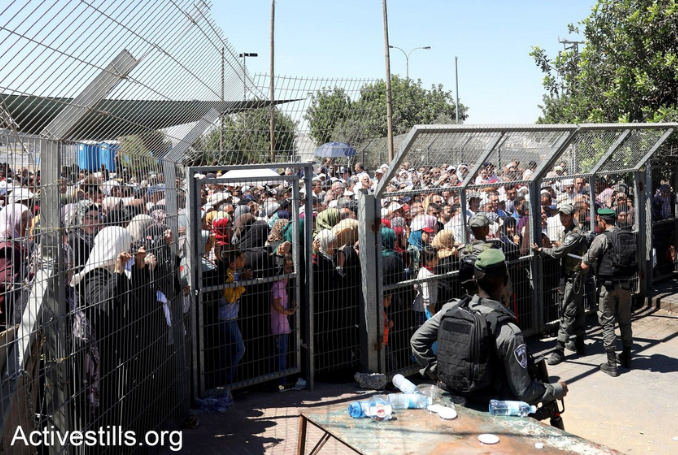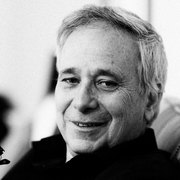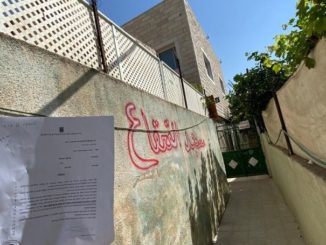
By Ilan Pappe – The Palestine Chronicle 
Can you imagine in the heyday of Apartheid in South Africa, a political movement or newspaper that would be regarded as liberal, and commended worldwide for its bravery, notwithstanding expressing their support for the Apartheid system itself? Can you imagine what would have happened if the thrust of the anti-apartheid movement in Africa would be based on the idea that Apartheid itself is fine, but some of its atrocious policies are unacceptable? Would apartheid have ever ended if this was the gist of the opposition to it? The answer is obvious – only those who opposed apartheid to the core contributed to its fall.
In the case of Israel, it seems that even pro-Palestinian outfits and activists do not fully comprehend the elasticity of liberal Zionism and its role in providing a shield of immunity to the Zionist regime itself. A case in point is the newspaper, Haaretz, entirely loyal to the Zionist ideology and part of the settler-colonial project from its very beginning and, yet, it is commended worldwide. Its reports are used as the most authentic and truthful evidence of what goes on, in particular, in the occupied territories (it is more cautious when dealing with the more sophisticated apartheid exercised against the ‘48 Arabs, the Palestinian citizens of Israel).
It is not as if there are no alternative sources to Haaretz; there are, among others, the six human rights organizations which Israel, with American consent, declared as terrorist organizations (MERETZ, the only liberal Zionist party in the Knesset, with whom Haaretz is rightly identified with, at first raised its objections to the move, than it had a short meeting with the head of the Shaback, and has not uttered a word ever since).[i]
A recent critique, coupled with appreciation, on the usage of the term Apartheid by Betzelm (B’tselem) has shown that the difference between Palestinian human rights organizations’ reports and those of the Zionist left is in the contextualization of the facts within a wider ideological and moral discussion.[ii] These Palestinian organizations may provide similar information, as Haaretz, Betzelm or Human Rights Watch do on the Israeli abusive policies but, unlike the other sources, they contextualize their report with a profound understanding about the destructive nature of Zionism and the settler-colonial state of Israel.
Even the worst atrocity can be tolerated and explained, if it is de-contextualized – namely is not related to an ideology – and, thus, the discreet dots of Israeli criminality are not connected together to provide the full and truthful picture of the real intent of the settler-colonial project of Zionism that will not end until it is stopped – which is to eliminate the Palestinians and Palestine. I am sure we all understand that elimination can take more than one form: it could be genocide, it could be incremental ethnic cleansing, sieges, closures, blockades and starvation, as well the erasure of heritage, history and culture. It can take place in dramatic operations or on a daily basis and can be directed towards the individual or the society, as a whole.
The need to appropriate and also regulate the criticism of Israel is the major project of Liberal Zionism – sometimes referred to as the Israeli Left – and its main mouthpiece is Haaretz. The newspaper is also connected to an NGO called Akevot (footprints) and its chief historian, Adam Raz, proudly broadcasting his Zionism. Occasionally, Raz shares with the readers new evidence on the 1948 massacres or abuses of the ‘48 Arabs under military rule. He also publishes books in Hebrew on the topic and is the editor of the mouthpiece of the Berl Katzanelson Fund, Telem (Katzanelson was the chief ideologue of the Zionist Labour movement, who advocated openly and relentlessly the ethnic cleansing of the Palestinians since the 1930s). Thankfully, his manipulative method was exposed recently by one of the last remaining Israeli historians with a solid moral backbone, Rona Sela, in the Jerusalem Quarterly.[iii]
Palestinians, and those who support the struggle, benefit from being exposed to the material; it would be much better to be able to access it ourselves, which we will not be able to do. Those who run the archives, as well as Haaretz, understand that liberal Zionist historians can be trusted with this damning material. Liberal Zionism has always been obsessed with finding the balance between the high moral ground and the wish to portray Israel as a civilized State that errs here and there (which usually means killing Palestinians throughout history). The message is clear: none of these mistakes, even if they are war crimes or crimes against humanity, to which the Liberal Zionist admits, should cast doubt on Zionism, or the very idea about the legitimacy of Israel to remain a racist and ethnic Jewish State at the heart of the Arab world.
When it comes to the truth, the Palestinians have nothing to lose. Even without the reports in the Haaretz on the present or past abuses against the Palestinians, there are enough sources, including this particular venue, that tell the world what it needs to know on Palestine’s past and present. These other sources contain ample information for anyone interested to form an educated and moral position on the ongoing Nakba in Palestine.
So why do I, and many others, still use Haaretz as a source? The main reason is that, unfortunately, we feel, perhaps wrongly, that we still need to legitimize or, rather, ‘Kosherize’ basic truths about Palestine through Israeli and Zionist sources. As a “new historian” in Israel, I fully understood the initial uneasiness with which our works were received by Palestinian scholars who had already worked on the subject.
The “new historians” contributed to the legitimization of the Palestine narrative; but it is outrageous that it needed to be legitimized. I have personally dealt with this dilemma and have shed the “new historian” reference and, instead of being a legitimizer, I see myself as a professional historian of Palestine, totally committed to the struggle – who contributes, rather than supplements – to the solidification of the Palestinian narrative; a narrative which is still denied in too many places, as is the Nakba altogether.
However, it is time to clarify and focus our strategy, at least as scholars and activists, at a time when the global political elites – with a handful of exceptions – still use the liberal Zionist aspect of life in Israel to justify their unconditional support for the Apartheid State of Israel. I am aware that we are all waiting eagerly, and I hope this will unfold in the near future, for a repristinate and united Palestinian collective leadership to take us forward in the struggle of liberation, either as Palestinians or as their supporters. In the meantime, a lucid and accurate language which includes a clear definition of Zionism with all its more deceiving innuendoes is as important as any other aspects of the struggle for justice and freedom in Palestine.
We can demand from our liberal Zionist friends that they walk the extra mile into anti-Zionism, as much as we demanded clear anti-Apartheid moral stances from our white friends in apartheid South Africa. There is no progressive settler colonialism, liberal ethnic cleansing or enlightened occupation. These are all forms of inhumanity that we should oppose in the name of humanity.
Footnotes:
[i] The last condemnation by the paper and the party was on October 23, 2021, and since then total silence.
[ii] https://www.aljazeera.com/opinions/2021/2/10/btselems-bombshell-apartheid-report-stating-the-obvious
[iii] https://www.palestine-studies.org/sites/default/files/jq-articles/A%20Question%20of%20Responsibility.pdf

– Ilan Pappé is a professor at the University of Exeter. He was formerly a senior lecturer in political science at the University of Haifa. He is the author of The Ethnic Cleansing of Palestine, The Modern Middle East, A History of Modern Palestine: One Land, Two Peoples, and Ten Myths about Israel. He is the co-editor, with Ramzy Baroud of ‘Our Vision for Liberation.’ Pappé is described as one of Israel’s ‘New Historians’ who, since the release of pertinent British and Israeli government documents in the early 1980s, have been rewriting the history of Israel’s creation in 1948. He contributed this article to The Palestine Chronicle.








Pappe is always a voice of reason but he and others must stop using the term Arab for what is really a non-Jew. Arab is a culture and Israel has never had a problem with Arabs or Palestinians, a people, because it gave Arab Palestinian Jews citizenship when it set up its State in Palestine in 1947.
The only criteria for rejection has been based on religion, i.e. non-Jews. Palestinian Christians and Muslims are rejected as inferior because they are non-Jews. That was and still is the entire basis for discrimination by the Israeli State.
Until those who defend justice and the Palestinians start using the correct terms then little will change. Israel’s apartheid is against non-Jews.
On the contrary, the artificially-created Jewish supremacist state of Israel has a huge problem with the indigenous Palestinians living on the soil of the Palestinian homeland (present-day Israel, West Bank, and Gaza). This is the reason why Israel has been conducting a savagely cruel ethnic cleansing campaign against the Palestinians for the past 73 years. The Zionist entity is doing everything possible to completely remove Palestinian cultural heritage from Palestine, and create a population (between the Jordan River and Mediterranean Sea) where the vast majority will be ethnic Jews.
So what that the Palestinian inhabitants of Israel (not including the Israeli-occupied West Bank and Gaza) are allowed to be Israeli citizens. It’s not possible for a country to deny citizenship to any particular person born in that country. Nevertheless, Israeli citizenship adds very little to the lives of those two million Palestinian Israeli citizens. Although they live better than their brothers and sisters in the occupied West Bank and Gaza, they are still treated as nothing more than third-class citizens, who are constantly abused and oppressed by the Zionist entity.